SB 2637 secures funding for women’s community-based furlough programs ensuring the successful reentry of women from incarceration.
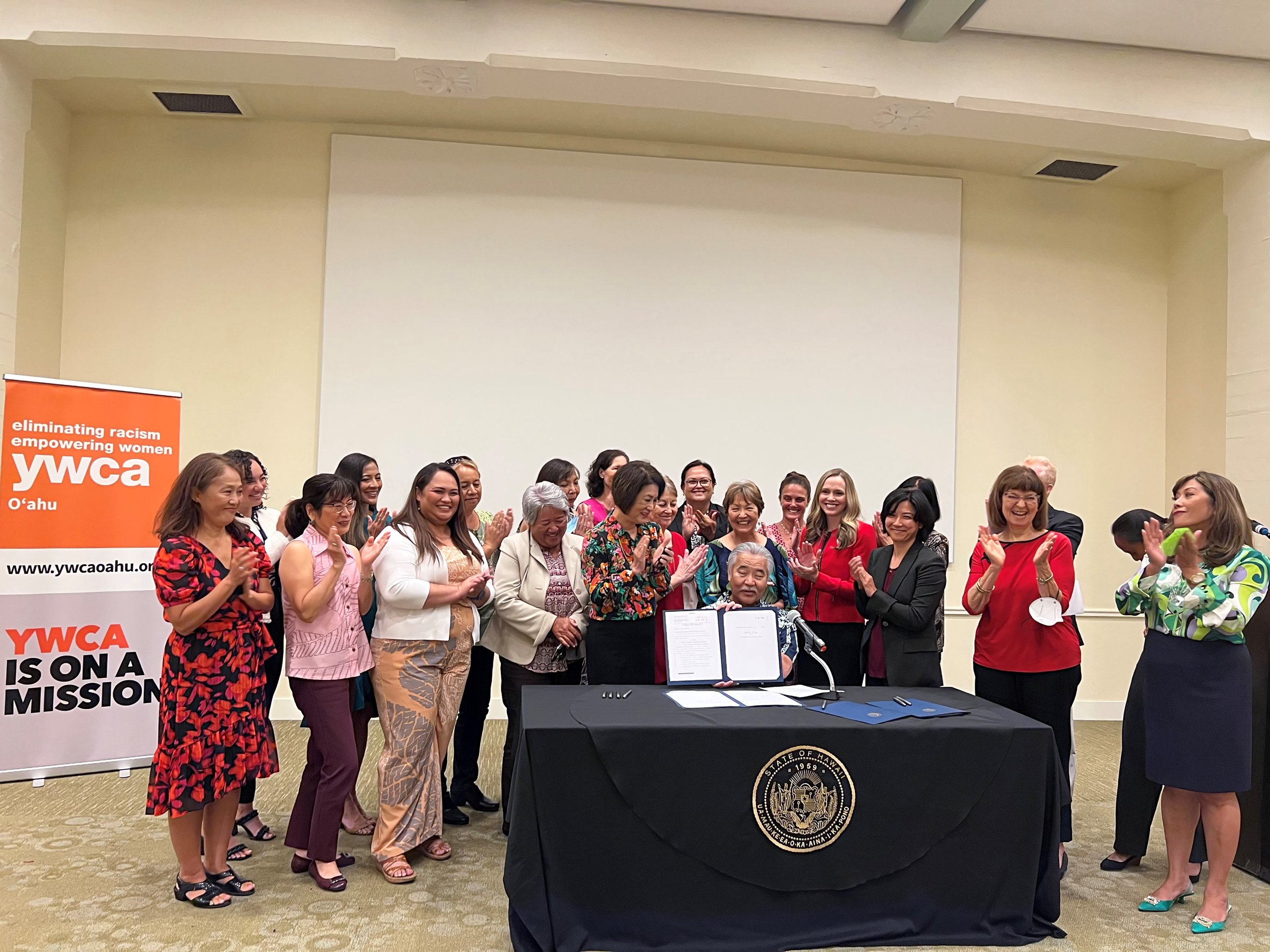
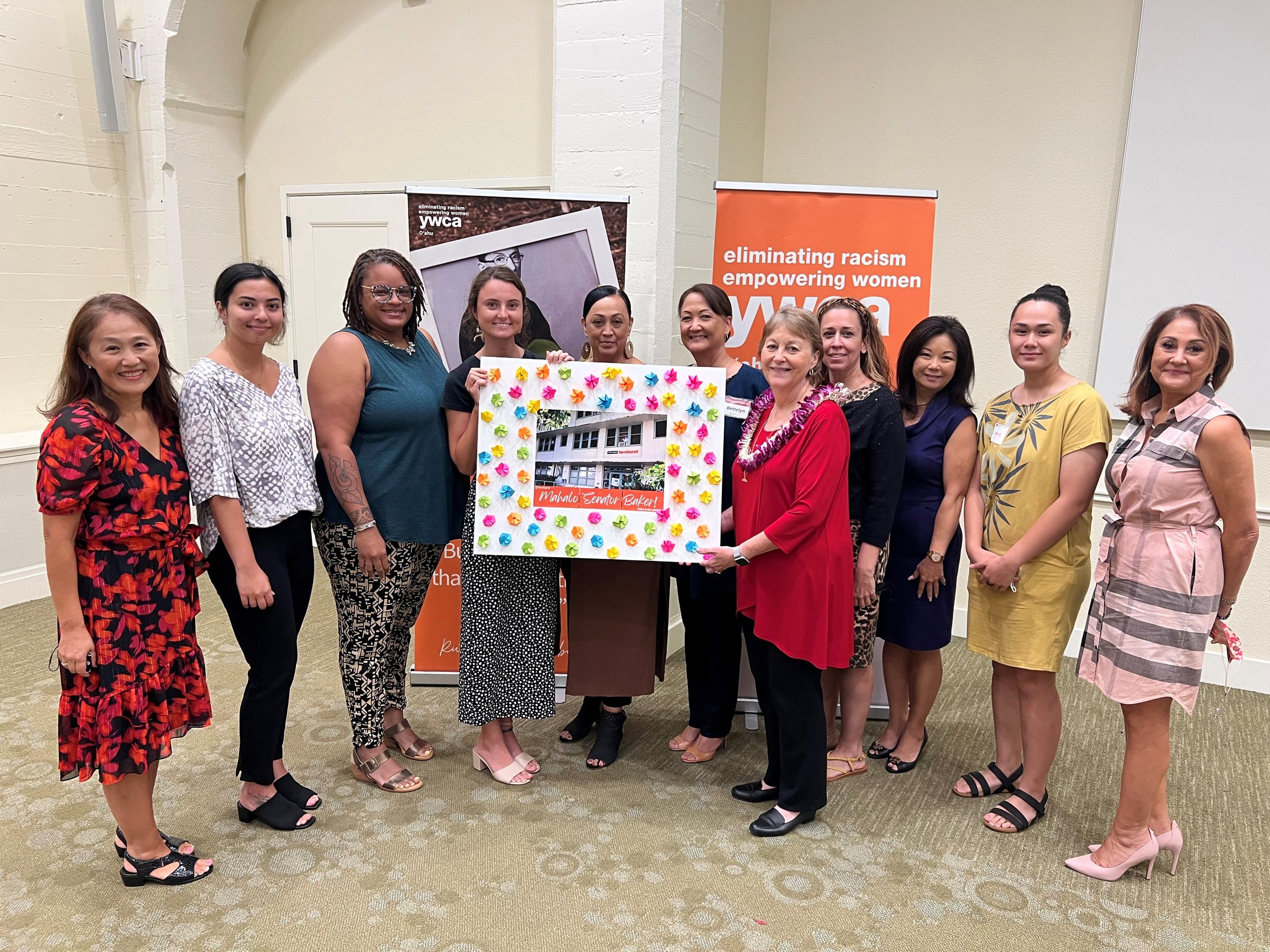
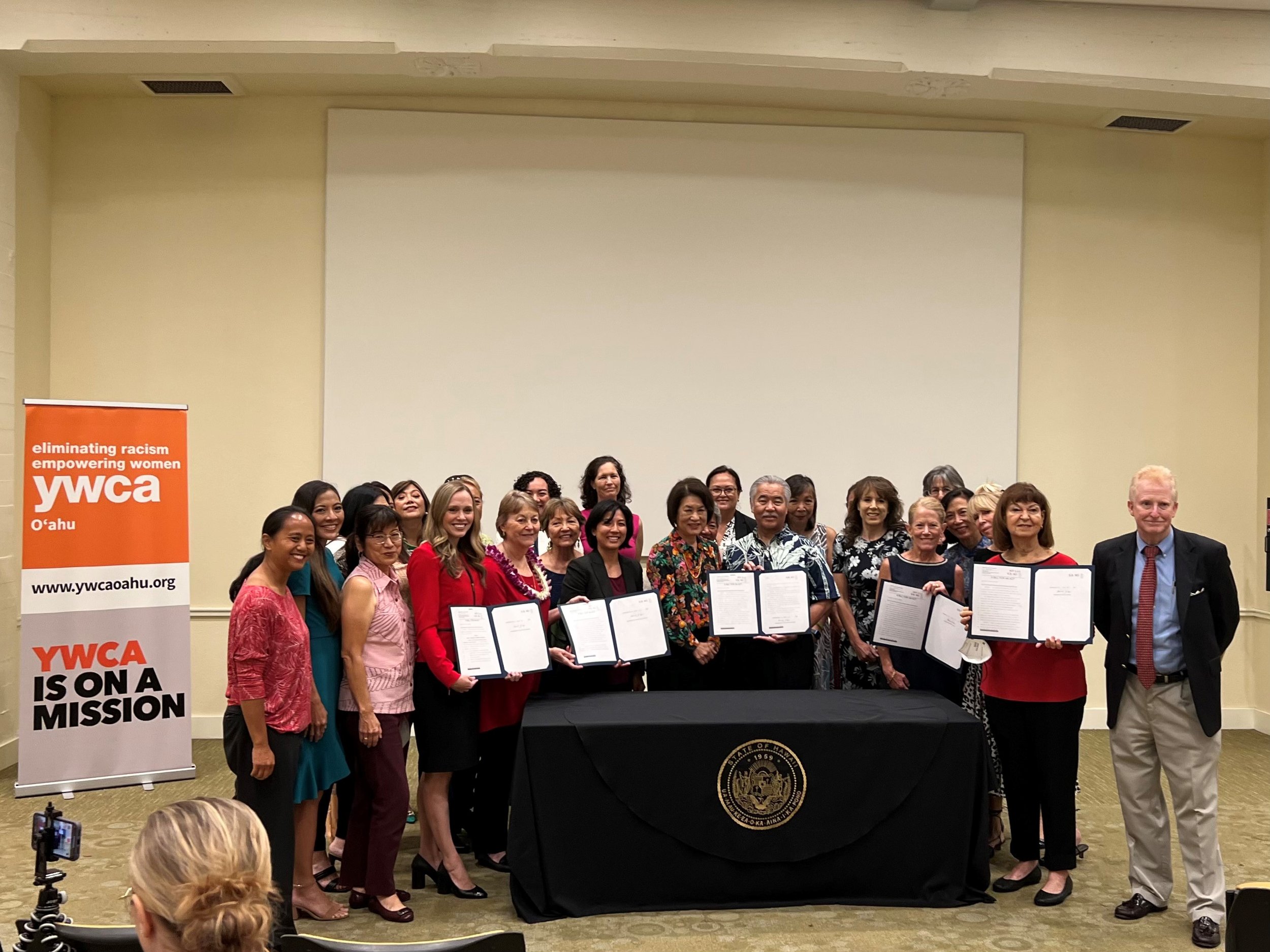
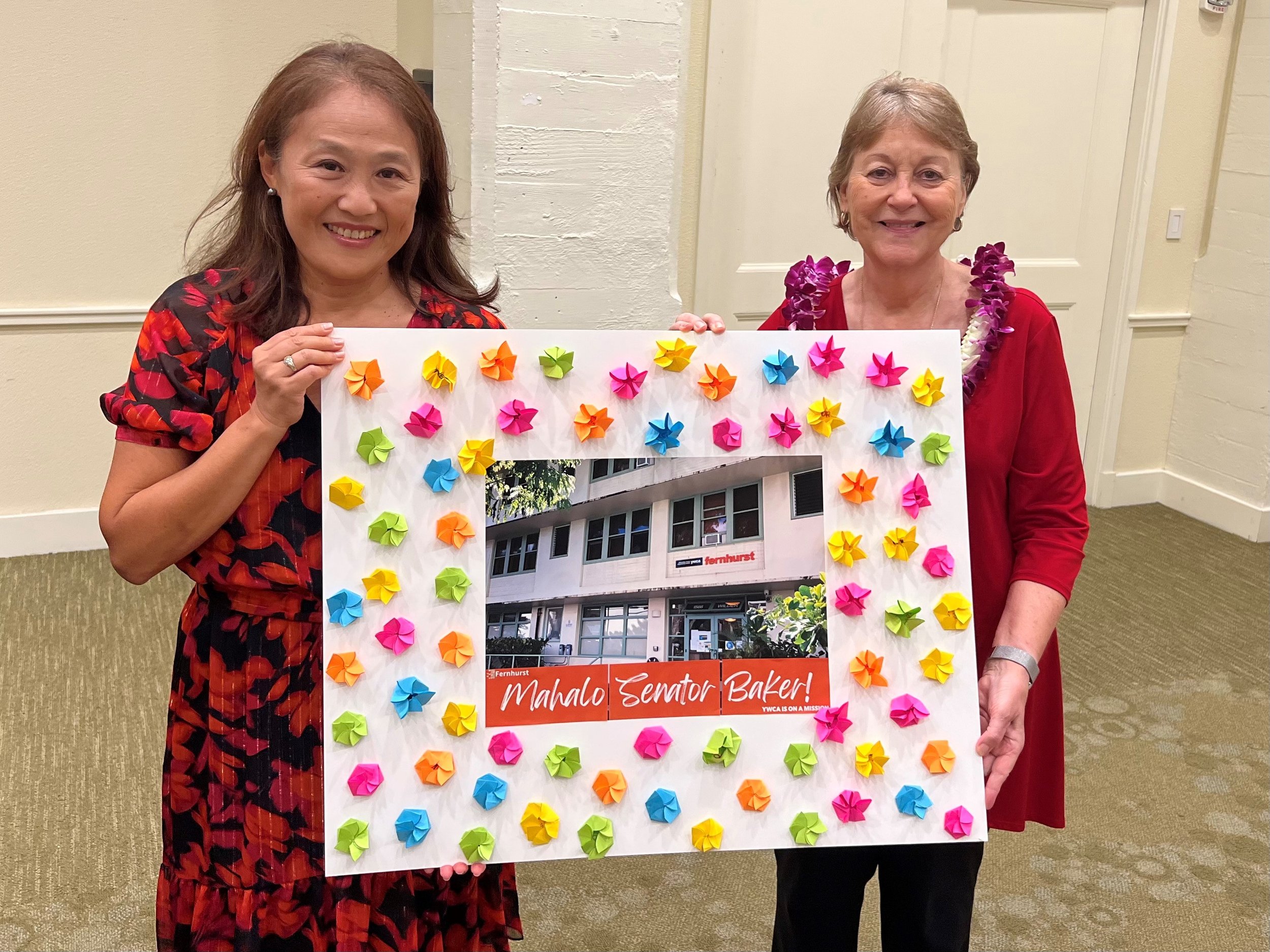
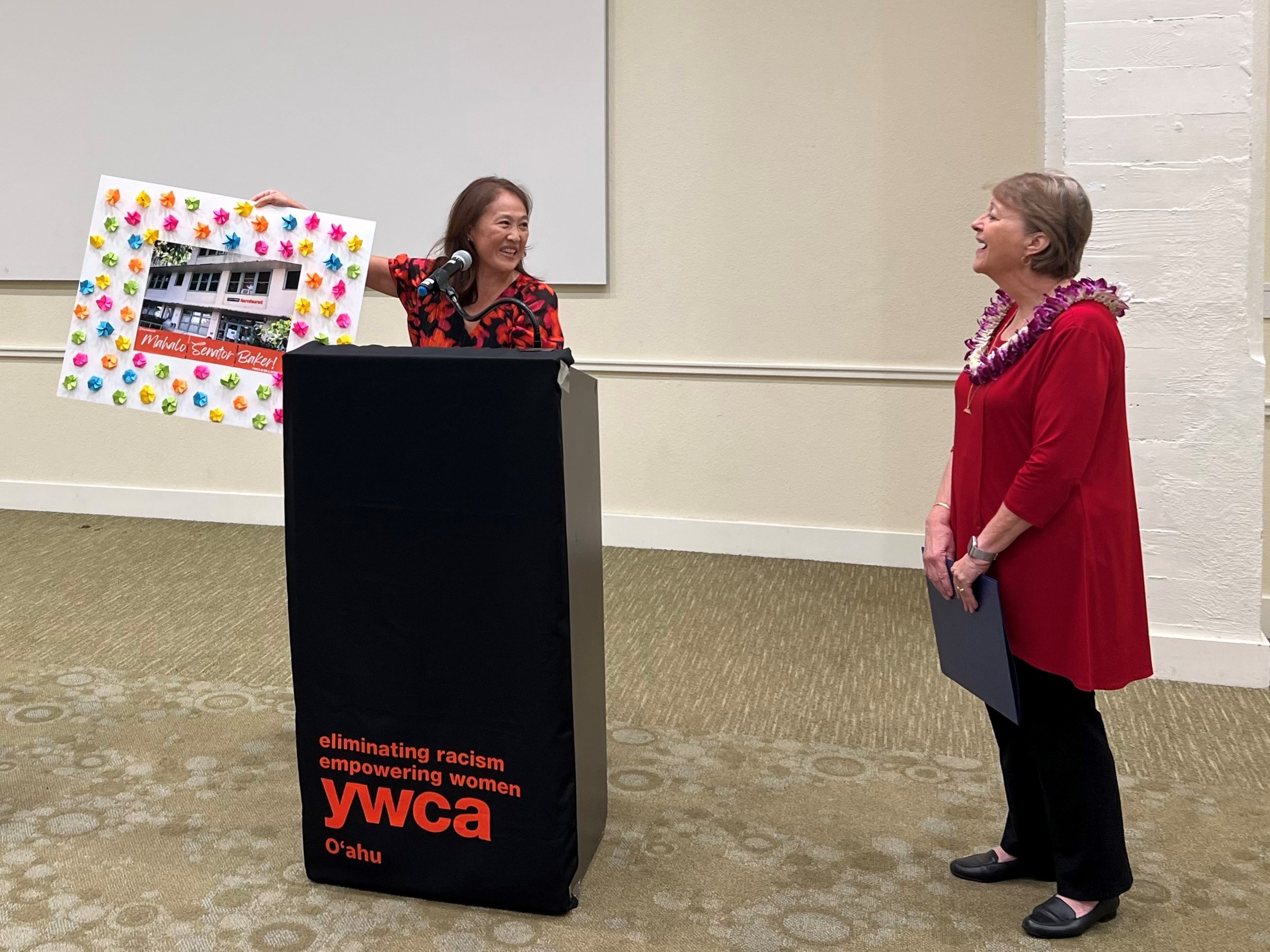

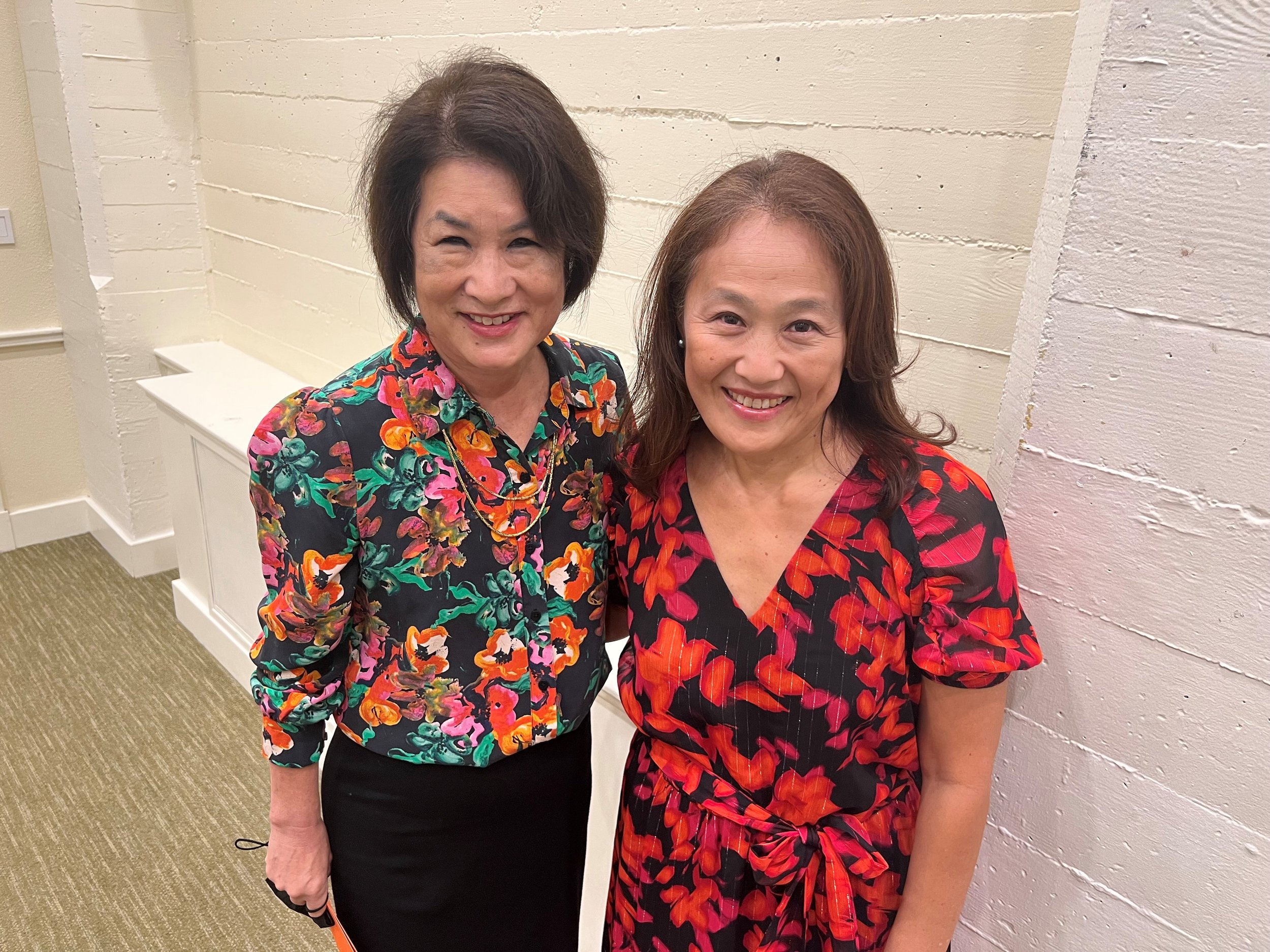
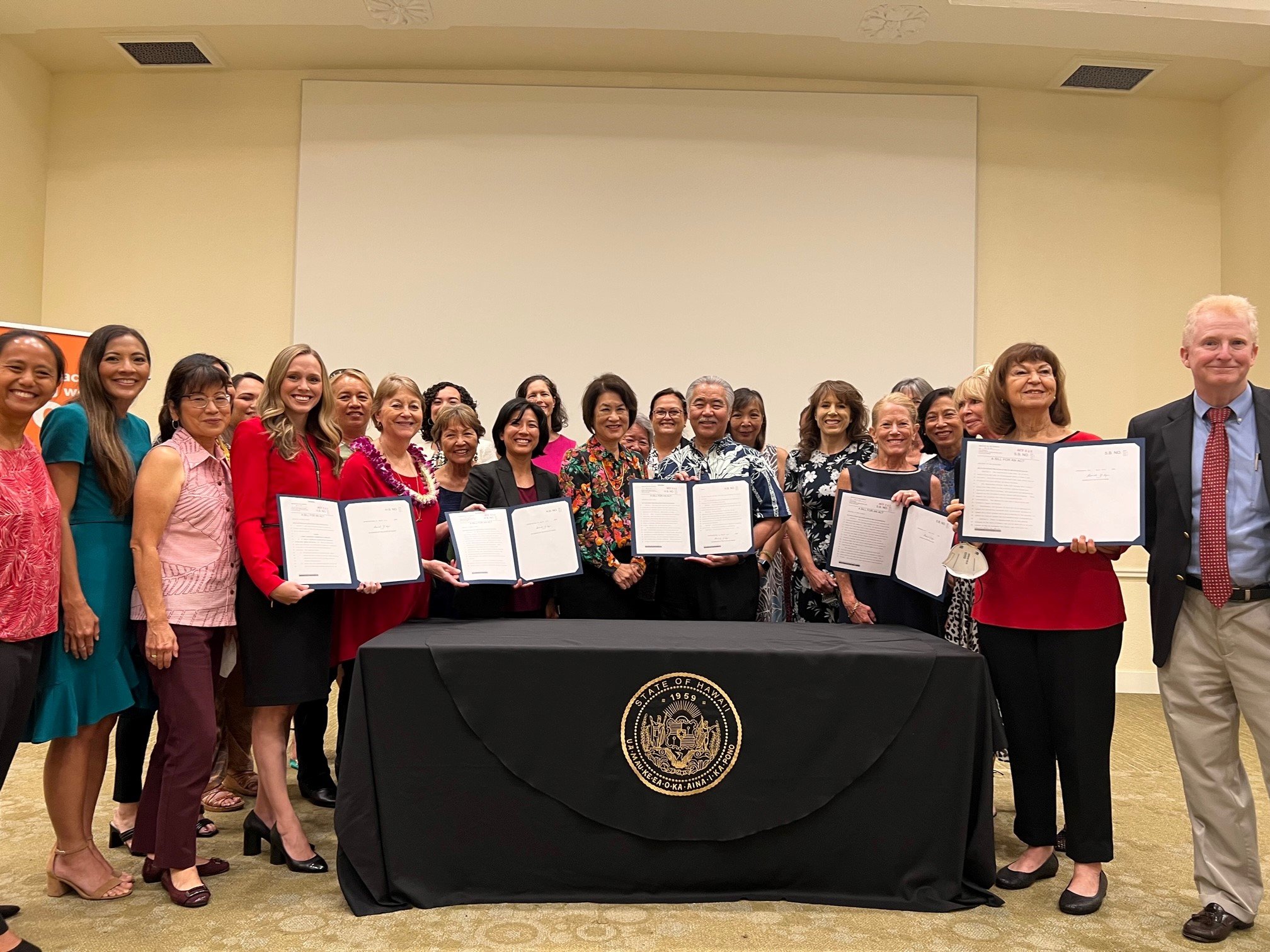
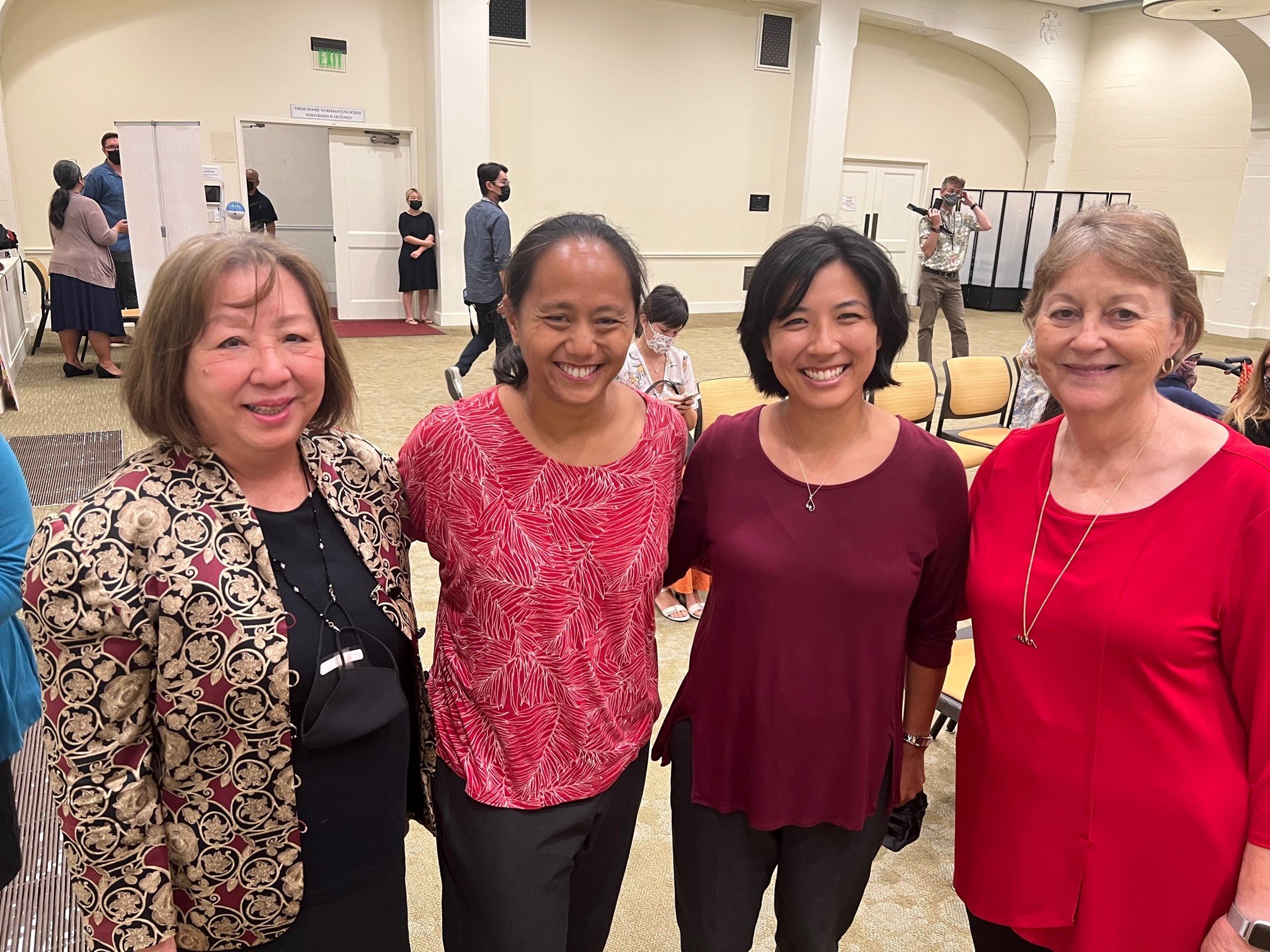
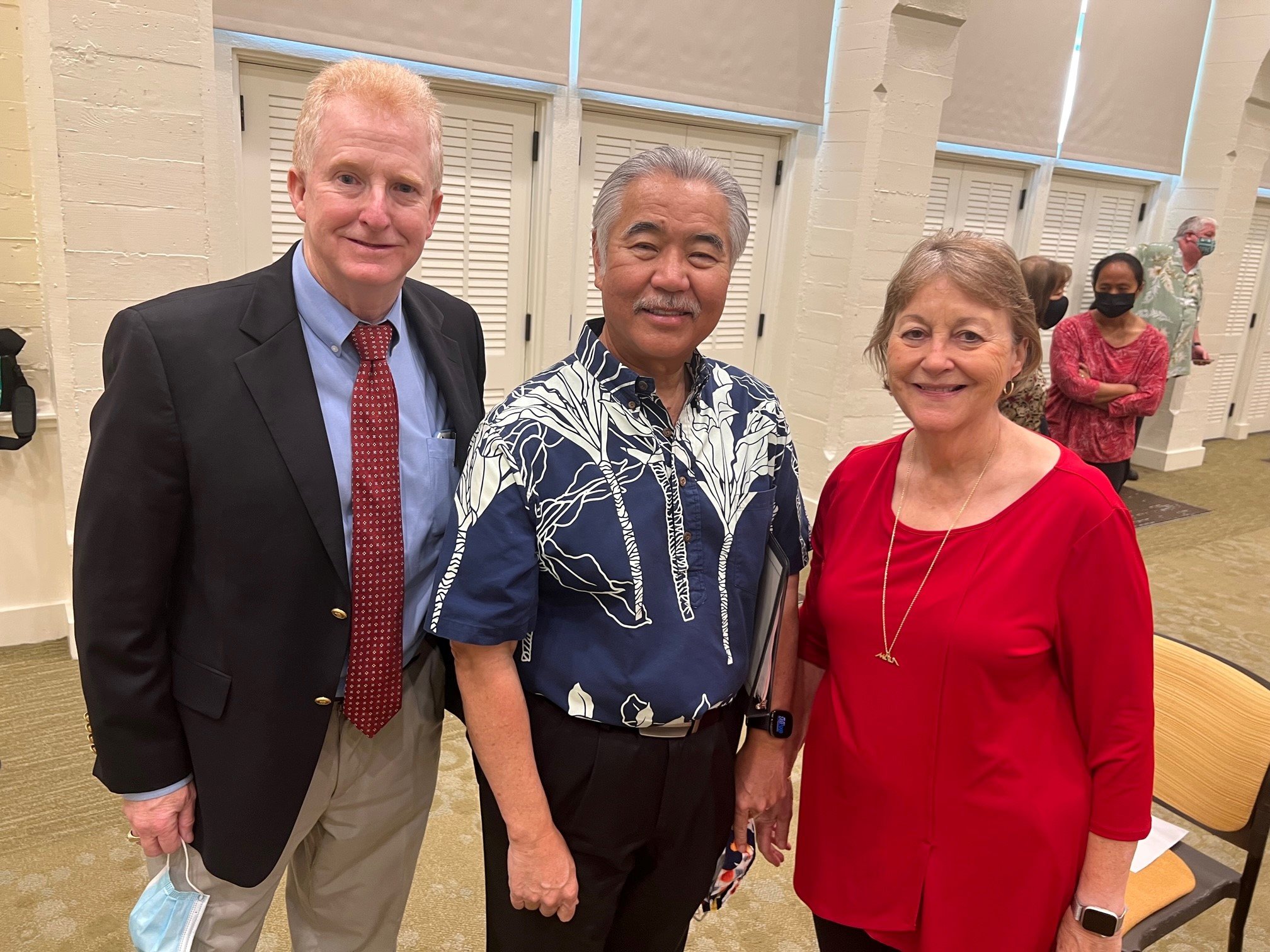
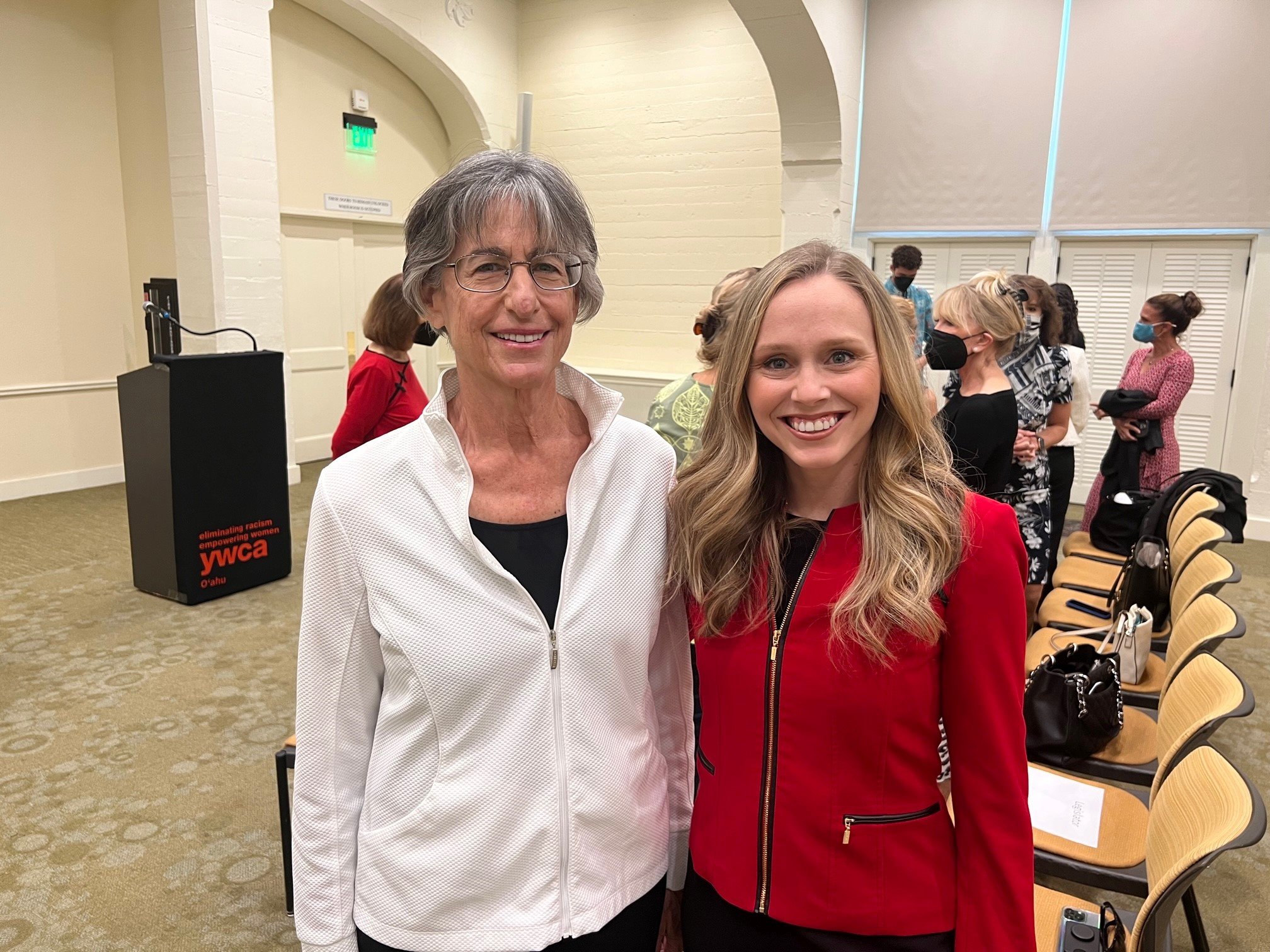
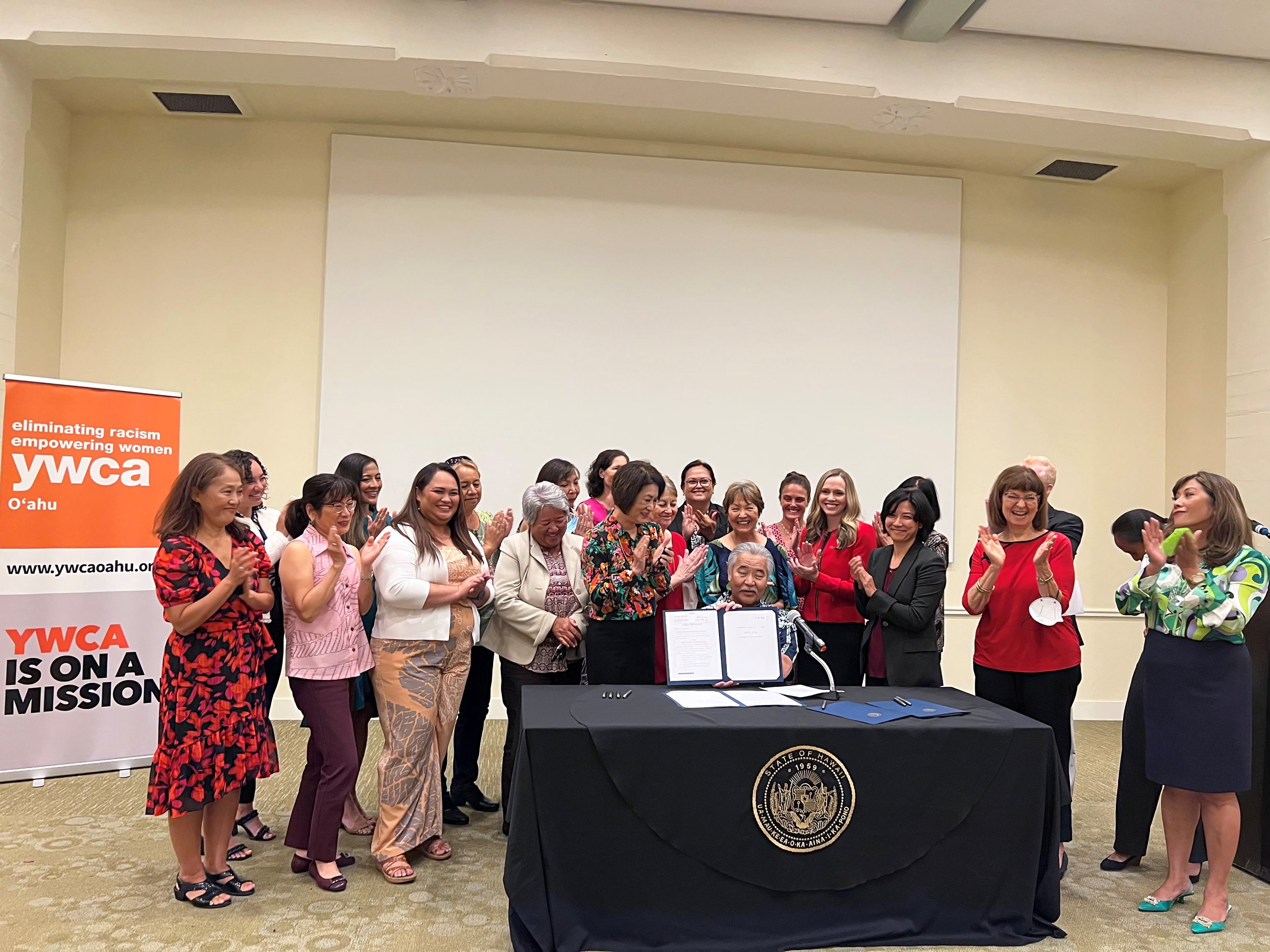
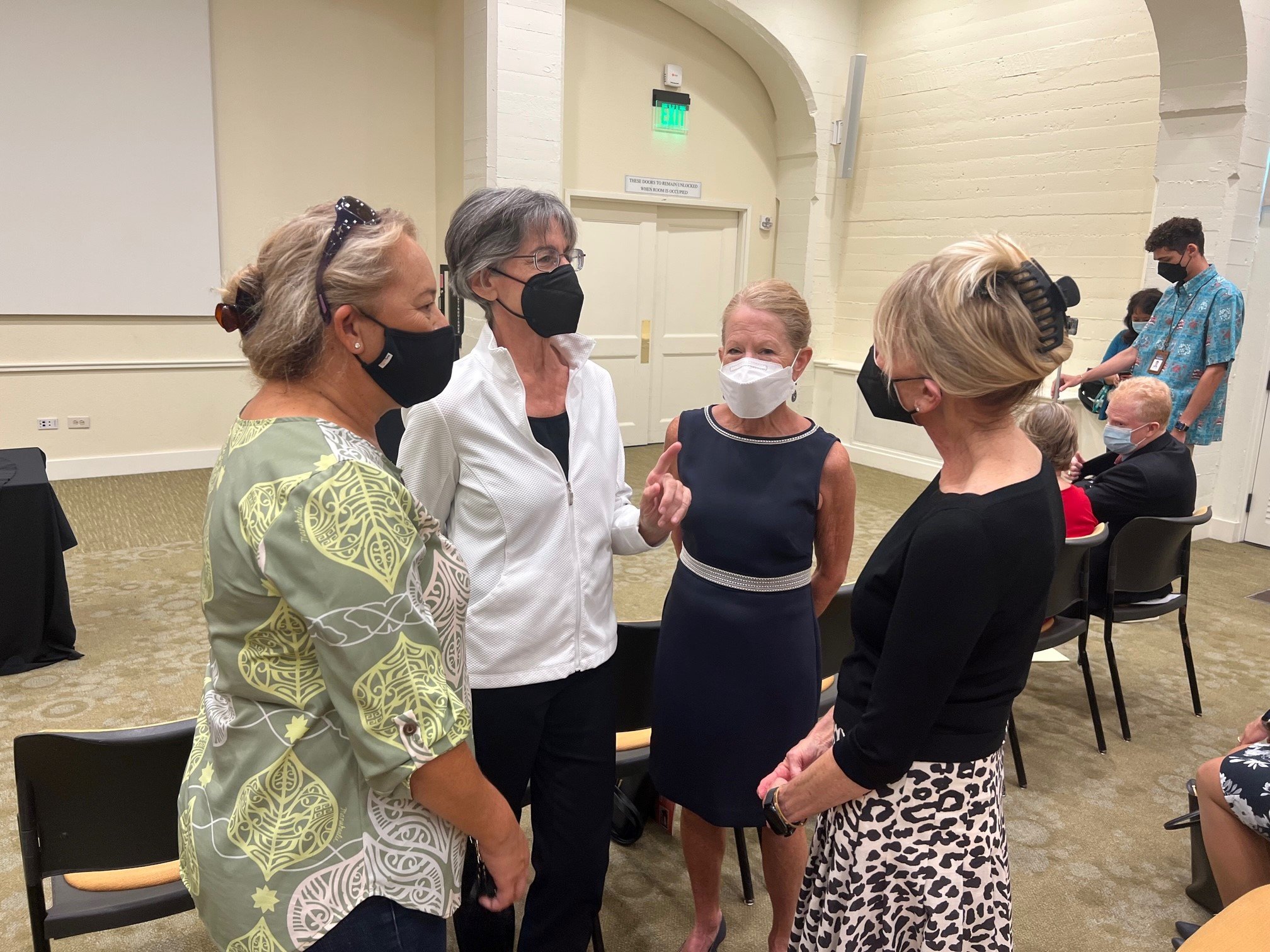
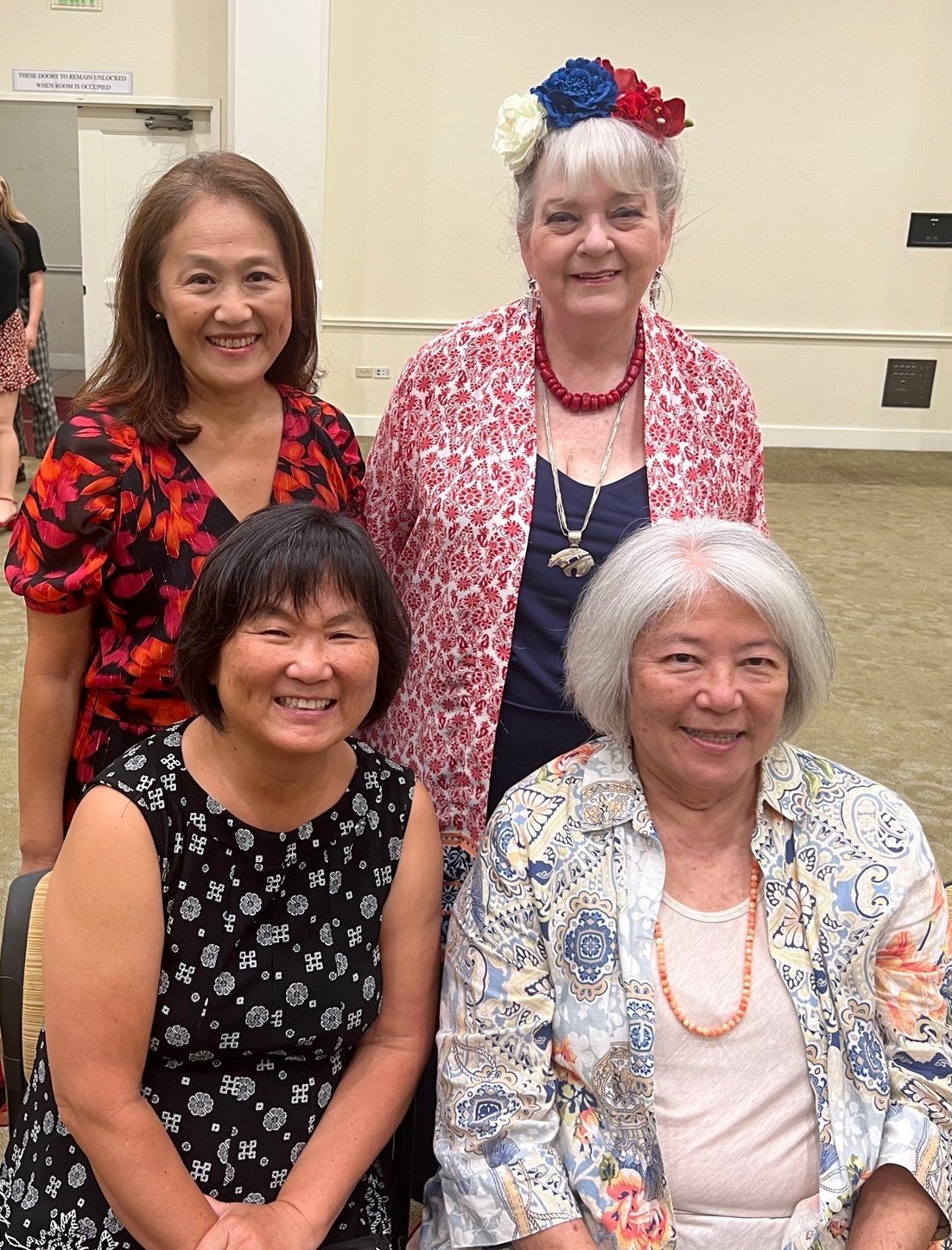
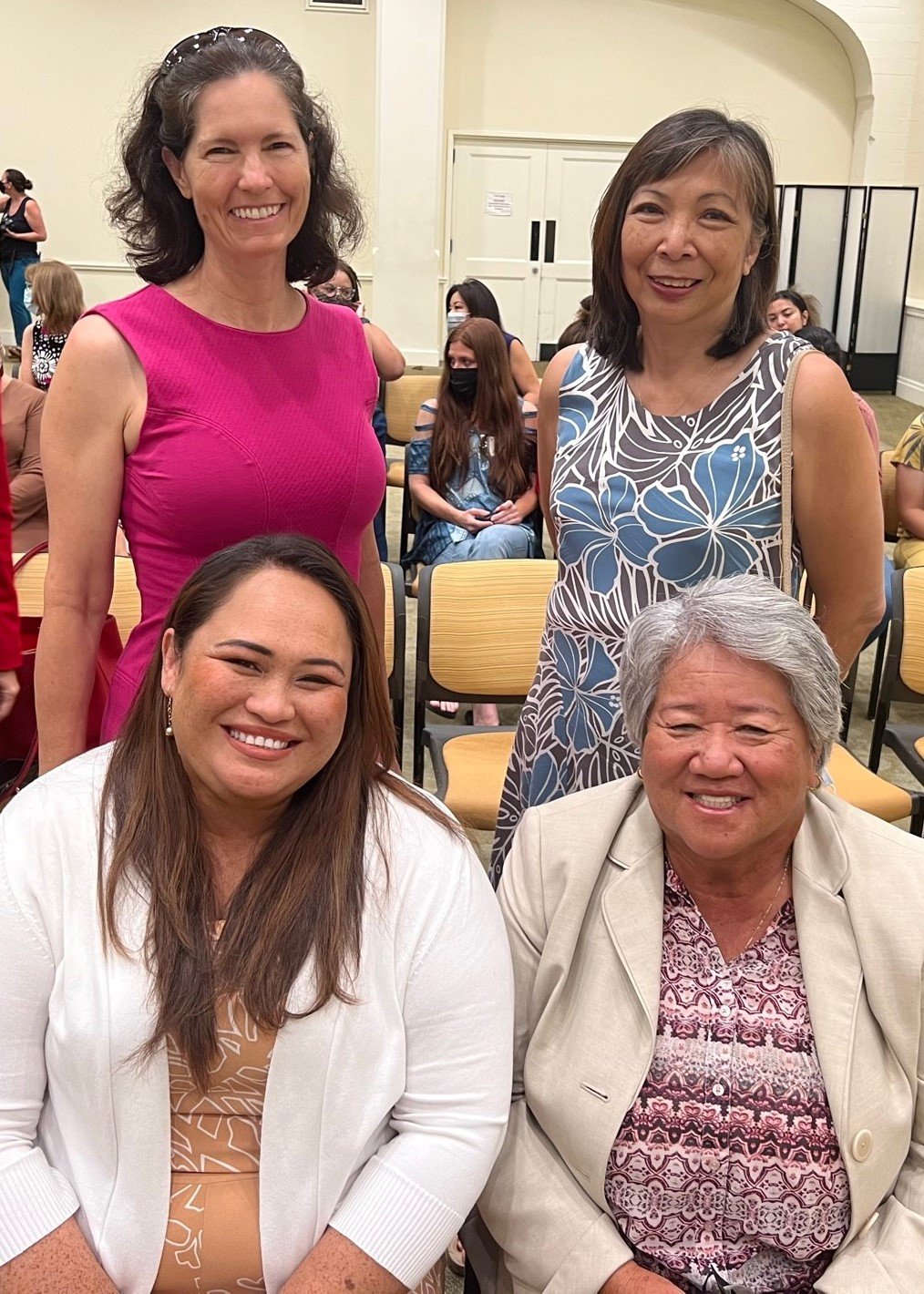
Today, July 6, 2022, Governor Ige joined us at YWCA Laniākea to sign five new bills into law, including SB 2637 that ensures that Fernhurst, our community-based work furlough program, can continue to help women reenter society after incarceration. The Hawai‘i Women's Legislative Caucus as well as members of the Judiciary and Hawaii Prison Project also attended to witness the signing of these bills that promote the wellbeing of women and their children in Hawai‘i.
YWCA O‘ahu is grateful to the elected officials and community members who supported these measures throughout the legislative process. In particular, Senator Rosalyn Baker has been integral in advocating for our community-based furlough program and we thank her for her tireless work to codify crucial funding into law.
CEO Noriko Namiki was present to celebrate this event and commented:
"Today we celebrate the Governor's signing of SB 2637, which mandates that there be a community-based work furlough for women in our state and provides an appropriation. We appreciate the work done by the Women's Legislative Caucus on this bill and for women's community-based work furlough over the years and look forward to working together with the Department of Public Safety to best utilize these funds."
Click here to view a complete photo gallery of the ceremony.
Click here to view the Women’s Legislative Caucus’ full press release.




